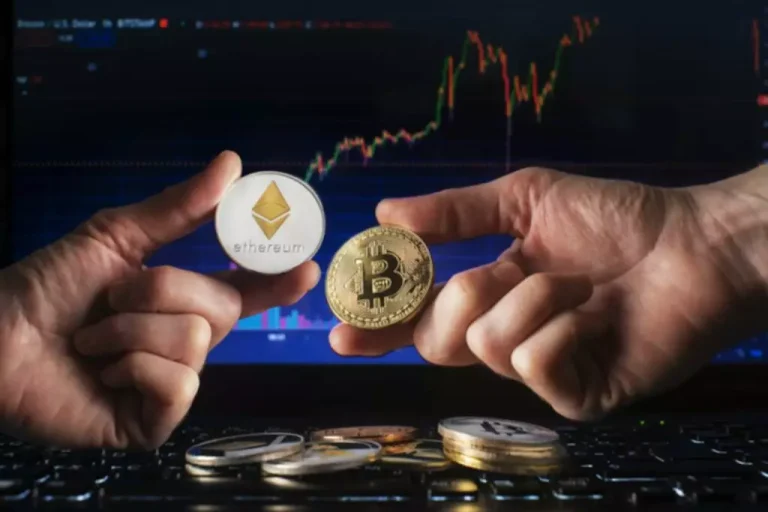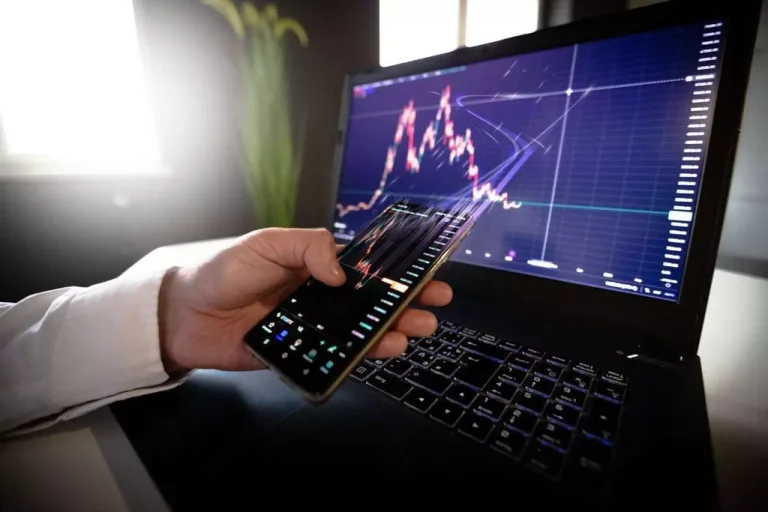Content
Dappsfirm’s expertise in blockchain development, legal rwa crypto compliance, and custodianship management makes them an ideal partner for companies looking to tokenize their physical assets. Whether you’re a real estate developer, a commodity trader, or a financial institution, Dappsfirm offers tailored RWA tokenization services to help you bridge the gap between traditional finance and the decentralized future. As such, Ondo Finance is a blockchain-based protocol that provides institutional-grade financial products and services. It focuses on tokenizing stable, yield-generating assets from traditional finance —such as treasury bonds— to offer individuals the reliability of conventional financial systems mixed with blockchain accessibility. The potential market opportunity for RWAs has generated increasing interest, as demonstrated by the deployment of pilot tests by both traditional institutions and crypto-native projects. According to a 2022 Celent survey, 91% of institutional investors have signaled their interest in investing in tokenized assets.

Shytoshi Kusama Unveils SHIB Token Utilities & “Shib Network State” Vision

There needs to be a solid connection between the https://www.xcritical.com/ digital token and the physical asset it represents. Basically, the crypto real-world assets industry is caught between the need to innovate and to follow the rules. One of the biggest headaches for the real-world asset industry is figuring out all the rules and regulations. Different countries have different rules about these things, so it’s hard for projects to follow the law everywhere.
What 2025 Holds for Tokenized Real World Assets
However, several protocols, like Goldfinch, focus on providing access to emerging markets, which are often challenging to invest in through traditional means. The integration of RWAs into decentralized finance (DeFi) platforms has created new possibilities for financial services. Additionally, ensuring sufficient liquidity for all real-world Proof of personhood assets crypto is a challenge. Actively trading markets with ample buyers and sellers is essential for price discovery and efficient trading.
Remaining Risks and Challenges Around RWA Tokenization
It aims to modernize traditional financial products by bringing them onto the blockchain. The protocol uses Ethereum as a secondary record-keeping tool to create and manage financial products. This particular protocol aims to revolutionize yield aggregation and liquidity management through its innovative financial NFTs, known as vouchers. These vouchers represent financial ownership and allow for flexible and efficient expression of complex financial contracts on the blockchain. The leadership team also includes board members such as Nic Carter and Firas Habach, who bring extensive experience in finance and blockchain technology. The protocol also offers a stablecoin called Real USD (USDR), which is backed by income-generating tokenized real estate, providing holders with a daily rebasing yield projected to be between 10-15% APY.
Additionally, Boston Consulting Group estimates that tokenizing illiquid assets could represent a $16 trillion business opportunity, accounting for 10% of global GDP. The protocol has amassed over $130 million in assets under management (AUM) and provides weekly yields of over 5%. Solv has raised over $14M from over 20 investors, some of them located in Singapore. The protocol’s backers include Laser Digital, UOB Venture Management, Mirana Ventures, Emirates Consortium, Matrix Partners, and more. Both founders have a background in traditional finance and have leveraged their expertise to bridge the gap between traditional finance and DeFi. Before adding each project to the list, we made sure they follow our selection criteria which is based on many factors, including but not limited to security, features, ecosystem, founders, funding, and more.
- This technology can be used in supply chain management, allowing a more transparent technique for verifying traditional assets on-chain.
- With direct redeemability and full collateralization, the supply of stablecoins can scale up and down as the market requires without issue.
- Instead of the usual lending process, Maple uses blockchain to make things smoother, cheaper, and more transparent.
- Projects in this category connect decentralized finance with traditional finance.
- This is where real-world items are converted into digital tokens on a blockchain.
- According to a 2022 Celent survey, 91% of institutional investors have signaled their interest in investing in tokenized assets.
The platform needed to handle intensive calculations for portfolio creation, fees, and settlements while remaining cost-effective and user-friendly across multiple blockchains. StUSDT is the first RWA (Real-World Asset) protocol designed for the TRON ecosystem, focusing on tokenizing U.S. Treasury Bills and other tangible assets for integration into the blockchain space. RWAs are revitalizing the asset landscape by merging traditional assets with cutting-edge technology. Their integration into blockchain and DeFi is a significant milestone, promoting inclusivity, innovation, and expanding investment opportunities.
Treasury bills, and repurchase agreements for its investment strategy underscores a conservative yet pioneering approach to merging traditional financial assets with the flexibility and efficiency of blockchain technology. Crypto RWA tokens provide innovative solutions to these challenges inherent in traditional financial assets. One of the most transformative advantages is their ability to lower entry barriers. By enabling fractional ownership of real-world assets, RWA tokens allow individuals to purchase tokens representing a portion of assets such as real estate or bonds. This approach significantly reduces the initial capital required, making these investments accessible to a wider audience who may have been previously excluded from such markets.
This allows for a more exciting financial interaction using Real-world assets. Additionally, we have Chromia as the network allows RWA projects to build transparent applications for the tokenization of real-world assets. Pendle Finance is integrating yield-bearing assets into its yield-farming and management system. It is one of the most popular DeFi protocols that use its yield-tokenization technology to split yield-bearing tokens into yield and principal components, allowing users to manage their yield in a more advanced manner. Vechain has partnered with several mainstream firms that use the network for supply chain management. The recent partnership with the UFC will enable the combat sports firm to tokenize sporting equipment using blockchain technology and enable a flexible and fractional ownership structure for rare sporting items.
Chromia is a modular blockchain network, it combines blockchain technology with relational database management technology. This enables applications on the network to manage data more flexibly, thus creating more possibilities for applications on the network. TokenFi is designed as a user-friendly platform to simplify the creation and tokenization of Real World Assets (RWA) without the need for coding.
Real-world asset crypto projects involve converting tangible assets like real estate, art, or commodities into digital tokens on a blockchain. This process allows for fractional ownership, increased liquidity, and new investment opportunities. In case you want to safely invest in digitized assets, it is advised to choose trustworthy exchanges like Binance or Coinbase to do so. Real-World Assets (RWAs) represent a transformative concept in the world of blockchain and cryptocurrency. They are digital tokens that reflect ownership or a share of physical and traditional financial assets. These assets can include anything from commodities like gold or oil, to real estate, equities, and even intellectual property.
For example, Binance is based in Tokyo, Japan, while Bittrex is located in Liechtenstein. While there are many reasons for why an exchange would prefer to be based in one location over another, most of them boil down to business intricacies, and usually have no effect on the user of the platform. They’re giving regular folks a shot at owning a piece of something big, like real estate or art. From understanding how these assets work to exploring some of the top projects in the space, it’s clear that this is a rapidly evolving field. It’s no surprise that major players in the financial world are taking notice.
Holding POLYX grants you special privileges like voting on platform decisions, getting discounts on transaction fees, and early access to new features. Imagine every product, piece of art, or property having a digital twin with all its details securely stored on the blockchain – that’s what OriginTrail is working towards. Meanwhile, the MANTRA and DAMAC partnership comes on the heels of the former’s chain mainnet launch in October. Amira Sajwani, DAMAC Managing Director of Sales & Development, noted that the partnership emphasizes the firm’s commitment to innovation and forward-thinking solutions. Leveraging the partnership, MANTRA and DAMAC have signed a $1 billion agreement to boost RWA tokenization.
Reward amounts will be determined based on the type and relevance of the information provided. Silvio Micali, a prominent computer scientist and professor at the Massachusetts Institute of Technology (MIT), founded Algorand in 2017. Other notable contributors to Algorand include Tal Rabin (Head of Research at the Algorand Foundation) and Chief Scientist Jing Chen. Sure, there are still some hurdles to jump over, like figuring out how to keep prices stable and making sure everyone can easily buy and sell these tokens.
The TokenFi (TOKEN) token serves as a utility token within the TokenFi ecosystem, enabling users to tokenize Real World Assets (RWA) efficiently on the platform. It facilitates various operations such as launching ERC20/BEP20 compliant tokens without coding, leveraging Generative AI for NFT creation, and connecting users with institutions for deeper liquidity and reach. TOKEN also powers the platform’s AI Smart Contract Auditor for on-the-spot audits, enhancing trust in the tokens created through TokenFi.
